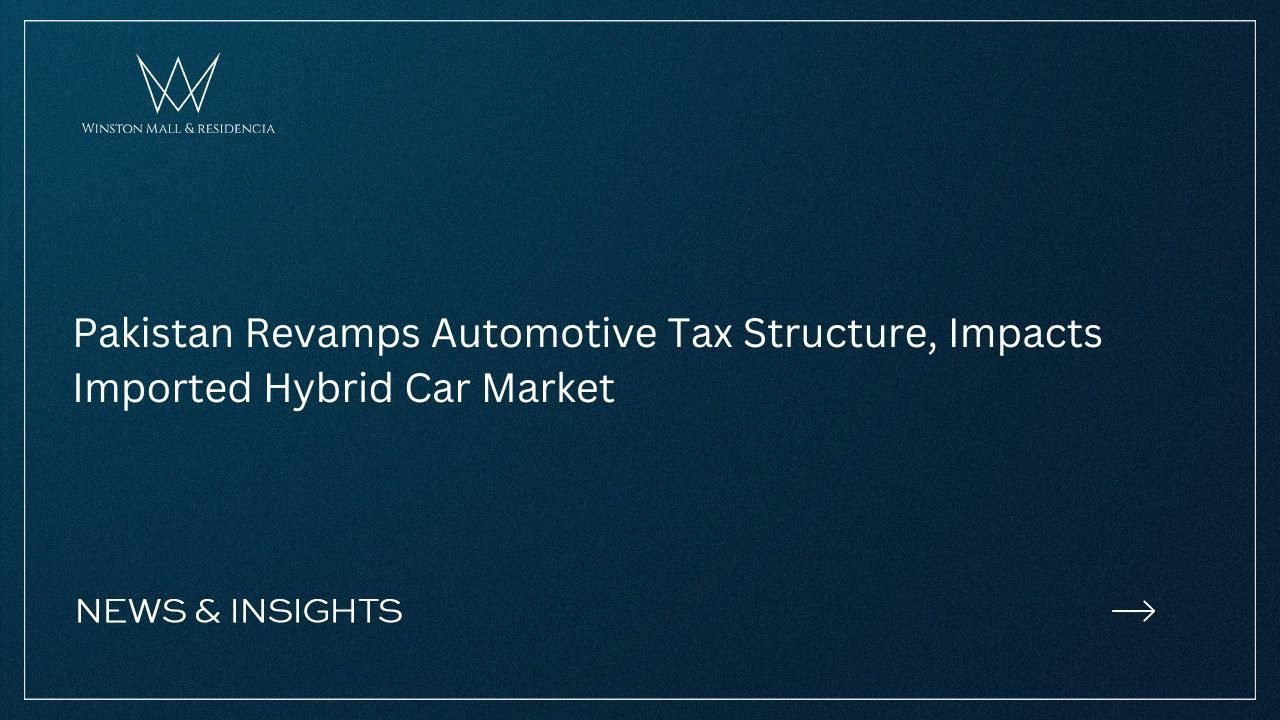In a significant policy shift, the Government of Pakistan has unveiled sweeping changes to its automotive taxation framework as part of the 2024-2025 budget. These modifications, particularly targeting the imported hybrid vehicle segment, are poised to reshape the country’s automotive landscape and consumer choices in the coming years.
The cornerstone of this policy change is the elimination of tax incentives previously offered for imported hybrid vehicles. Under the new regulations, these eco-friendly automobiles will now be subject to taxation comparable to conventional vehicles, with levies based on both price points and engine capacities. This adjustment is expected to trigger a substantial increase in the retail prices of hybrid cars in Pakistan, potentially dampening their market appeal and sales prospects.
According to official budget documents for 2025, this strategic decision is rooted in the recent developments within Pakistan’s domestic automotive industry. The government cites the emergence of local hybrid vehicle production as a key factor in this policy recalibration. As domestic manufacturers have begun rolling out hybrid models, policymakers argue that the tax breaks originally designed to promote hybrid technology are no longer necessary. Furthermore, they point to a narrowing price gap between conventional and hybrid vehicles as additional justification for this tax structure overhaul.
Read More:- Pakistan Prepares for Ashura 2024: Dates Announced and Commemorations Planned
The budget also introduces an increase in withholding tax rates applicable to standard automobiles, a move that indirectly contributes to the rising costs of imported hybrid vehicles. This tax hike affects a broad spectrum of vehicles, encompassing engines ranging from sub-800cc models to those exceeding 2000cc, thereby impacting a significant portion of the automotive market.
Industry analysts are closely monitoring these developments, anticipating potential shifts in consumer behavior and market dynamics. Some experts predict that these changes could lead to a surge in demand for locally produced hybrid vehicles, as they may now offer a more cost-effective alternative to their imported counterparts. Others express concern about the potential environmental impact, fearing that higher prices for hybrid vehicles might slow down the adoption of greener transportation options in Pakistan.
Automobile importers and dealerships specializing in hybrid vehicles are bracing for the impact of these new policies. Many are reassessing their business strategies and inventory management practices in light of the expected price increases. Some industry insiders suggest that this could lead to a short-term boom in hybrid vehicle imports as consumers rush to purchase before the new tax structure takes full effect.
Consumer advocacy groups have voiced mixed reactions to the announcement. While some applaud the government’s efforts to bolster domestic manufacturing, others worry about the potential limitation of choices for environmentally conscious consumers who prefer specific imported hybrid models.
The Pakistan Automotive Manufacturers Association (PAMA) has welcomed the move, stating that it will level the playing field for local producers and potentially accelerate investment in domestic hybrid technology development. They argue that this policy shift could create more jobs in the local automotive sector and contribute to the country’s economic growth.
Environmental organizations, however, are calling for a more nuanced approach. They suggest that the government should consider introducing new incentives for eco-friendly vehicles, regardless of their origin, to ensure that Pakistan continues to make progress in reducing vehicular emissions and combating air pollution.
As the details of the budget continue to be analyzed, stakeholders across the automotive ecosystem are preparing for a period of adjustment. The government has indicated that it will closely monitor the impact of these changes and may consider further refinements to the policy as needed.
The implementation of these new tax measures is scheduled to coincide with the start of the fiscal year 2024-2025. In the meantime, consumers considering the purchase of an imported hybrid vehicle are advised to stay informed about the evolving situation and potentially accelerate their buying decisions if they wish to avoid the impending price increases.
This policy shift marks a significant milestone in Pakistan’s automotive and environmental policies, potentially setting the stage for a new era in the country’s approach to sustainable transportation and domestic industrial development. As the situation unfolds, all eyes will be on the market response and the long-term implications for Pakistan’s automotive industry and environmental goals.
Winston Mall: please contact +92-314-5166334 or visit https://winstonmall.com/



